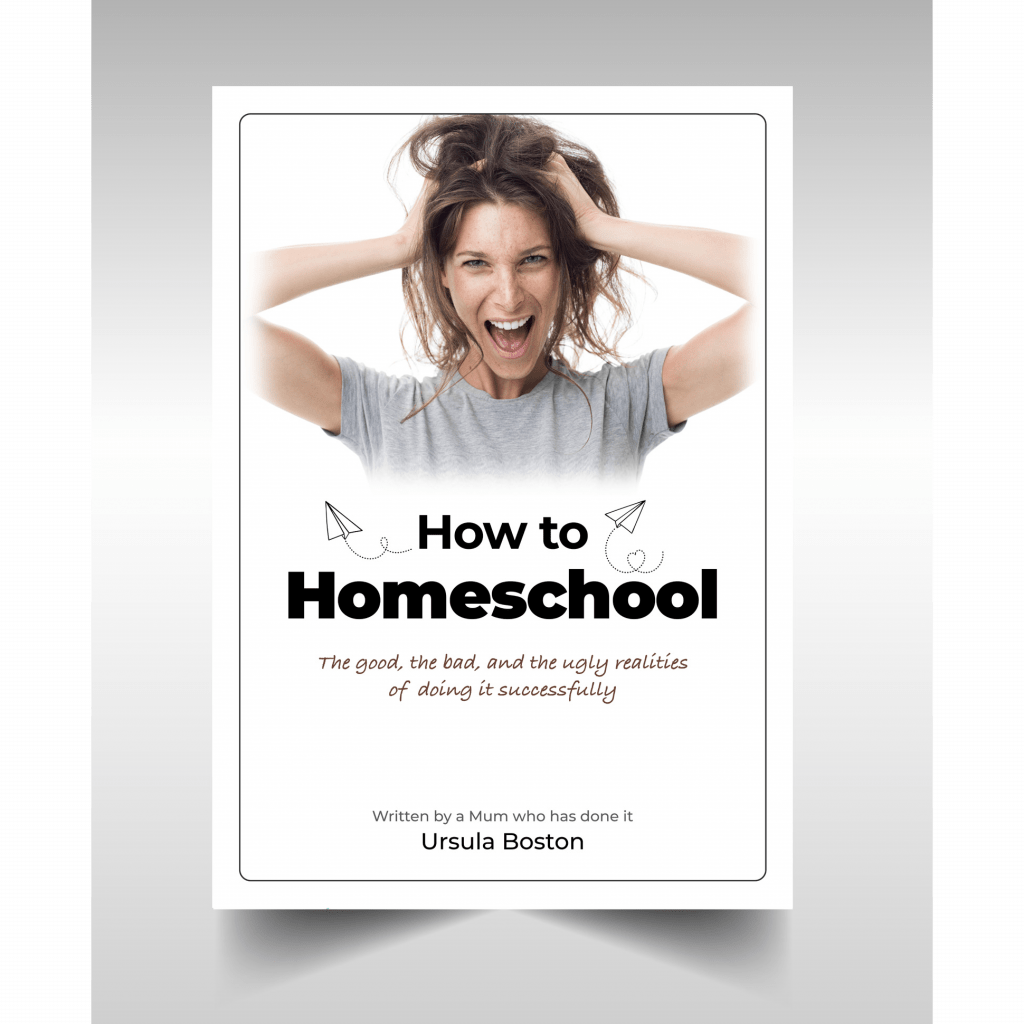The benefits of homeschooling are plentiful. Homeschooled children tend to be more academically successful than their peers in public school and they typically score better on standardized tests.
Those students who are homeschooled and attend college also have a greater chance of graduating from college. This is usually attributed to the fact that the majority of homeschooled students have greater skills in self-motivation, time management, organization, and commitment.
Homeschooling can provide an environment where your child’s interests can flourish and you can tailor the curriculum to match his or her needs as he or she grows up.
It may even help him/her avoid some of the pitfalls that come with being stuck in one type of education system for too long (like boredom).
What Is Required For Homeschooling In Georgia GA?
You can choose to homeschool your child in two ways:
- by enrolling him/her in a public school as a homeschool student,
- or by filing for a homeschool exemption from local school systems.
In either case, you will have to follow the same general guidelines and ensure that your child is progressing academically.
Here are some general homeschooling Guidelines :
- You must homeschool exclusively.
- If your child is accepted as a homeschooled student in a public school system, you will be required to submit reports and tests at the end of each grading period or semester.
- Homeschooling families that don’t want their children to be labelled as ‘homeschoolers’ aren’t required to report any testing or grades. If your family falls into this category, (unschooled is a typical label for this type of education)
- Local school systems are not allowed to ask about your religious beliefs or whether or not homeschooling is part of your faith.
- You are required to keep a record of attendance, showing how many days each child has been in attendance at home completing educational studies.
- No more than two children are allowed per adult in the family. If there are three or more children living in your home, you will need an additional adult to help your child be successful.
- You will need to teach general subjects: reading, writing, and math (each at a minimum of 4th-grade level). You may also want to consider teaching science and social studies in older grades.
- Parents must provide information when requested by the Educational Department in your State about the child’s educational activities and the teaching materials used in each subject area.
- It can be difficult to find other homeschooled kids to interact with within the area, so you may have to enrol your child in a co-op or church group. Homeschooling families can also start their own groups and meet regularly to help each other out.
How Homeschooling Works in Georgia
Homeschooling works in Georgia, because the state allows parents to use a relaxed curriculum, which means that children can move at their own academic pace and the curriculum content, can be chosen by the parent or tutor. Curriculum can be purchased from other sources and integrated with personal subject content to suit the student and the family lifestyle.
In addition, parents are only required to teach reading, writing, and math (each at a minimum of 4th-grade level). It is beneficial if social sciences and history are also included in the older grades.
Finally, homeschooled children who want a higher education should work towards obtaining a high school diploma and follow general state school subjects. However, this is not a mandatory requirement for this pathway.
Homeschooling Rules and Requirements
Homeschool families must follow the same general guidelines.
Children should be academically successful and parents must keep a record of attendance, showing how many days each child has been in attendance at home and the number of hours each day or week.
The number of children per household is limited to two; if three or more children are living in your home, you will need an additional adult to help your child be successful.
Parents must also provide information about the child’s educational activities and the materials used in each subject area.
Homeschooled children should work toward obtaining a high school diploma even if further education is not part of the student’s future.
Sometimes it can be difficult to find other homeschooled kids to interact with within the area or perhaps your family is a transient traveler. It is a good idea if you can enrol your child in a co-op or church group. If there aren’t any established groups that meet regularly, find an online group or consider starting one yourself!
How Do I Start Homeschooling in GA?
If you’re looking to start homeschooling in Georgia, there are a few things you’ll need to do in order to make sure everything is in order.
The first step is to contact your local school board and get information about the specific requirements for homeschooling in your area. You’ll also need to come up with a curriculum for your child and create a lesson plan.
It’s important to be organized and consistent with homeschooling, so make sure you set aside time each day for lessons.
You may also want to join a homeschooling support group or online forum to get advice and tips from other parents.
Support for Home Education in Georgia
If you’re looking for support for your child’s homeschooling in Georgia, there are a few different places you can go.
The first place to look is your local school district. Many school districts have homeschooling programs that they offer, and they can often provide you with a lot of helpful resources.
But before you jump into this decision, there are some questions you should ask yourself first:
What Are The Benefits of Homeschooling?
Well, there are dozens of reasons why you might choose to homeschool your child. Here’s a list of what you stand to gain if you decide on this path:
- Your child can get one-on-one instruction.
- In areas where they need extra support, a slower learning pace can be implemented along with more in-depth tuition and parental guidance and support.
- You can customize the curriculum to your child’s strengths and interests.
- Your homeschooled child is less likely to be bullied.
- Homeschooling provides a setting where it is very hard for children to be “different.”
- It may provide an environment in which your child can be most successful, socially and academically.
- Homeschooled children tend to actually learn responsibility because they are responsible for themselves. When you homeschool your kids, YOU are the teacher! You teach skills that they will need in order to function in society…like how to cook, do laundry, clean their rooms, budget money, do research, create presentations, write sentences with proper grammar, etc.
- Homeschooling is better for your child’s self-esteem because he/she gets to move at his own pace and prove what they have learned by taking state exams. They are not marked “below average” or “average” just because most of the kids in his/her class are not up to the same level of academic achievement.
- Homeschooled children get ample opportunities to socialize with other homeschooled kids (in church, co-ops, and field trips) and they also get to form relationships with adults who can act as mentors or role models.
- Your child will be more likely to develop his/her unique interests because you are there guiding the way.
- Homeschooled kids tend to have better manners and they are more likely to be well-adjusted socially because of all the opportunities they have to interact with adults. They also have a chance to form relationships with other homeschooling families, which can give your child an opportunity to spend time with like-minded kids.
- Homeschooled children tend to be more creative and fulfilled because they aren’t forced into a school system that doesn’t fit their needs. You may find that your child blossoms when you decide to homeschool him/her.
Common Misconceptions About Homeschooling
There are a few common misconceptions about homeschooling in Georgia. The first is that homeschooled students are behind their traditionally-educated peers.
The second misconception is that homeschooling is only for religious families.
The third is that homeschooling is expensive.
And the fourth is that homeschooled children are not socialized.
Each of these misconceptions is addressed below. First, research has shown that homeschooled students perform just as well, if not better, than traditionally educated students on standardized tests.
Second, while homeschooling may be more popular among religious families, it is not limited to them. There are many secular families who choose to homeschool for a variety of reasons.
Third, contrary to popular belief, homeschooling can actually be less expensive than traditional education.
Fourth, while some people may argue that homeschooling deprives children of an opportunity to mingle with classmates, new research proves the opposite – that homeschooled students are not at a disadvantage when it comes to socializing.
Resources For Homeschooling in GA:
The Georgia Department of Education provides a variety of resources for parents who are interested in homeschooling their children. These resources include an online application, a list of approved curriculum providers, and a guide to homeschooling in Georgia.
The Home School Legal Defense Association (HSLDA) is a national organization that provides legal defence and advocacy for families who homeschool. HSLDA also offers a variety of resources, including an overview of the homeschooling process, information on state homeschool laws, and tips on how to start homeschooling.
The National Home Education Research Institute (NHERI) is a nonprofit research institute that conducts studies on home education. NHER I’s website offers fact sheets and statistics on home education, as well as forums on various homeschooling-related topics.
The Georgia Home Education Association (GHEA) is an advocacy group for families who homeschool their children. The GHEA provides information about upcoming homeschool events, online groups to join, and events open to the general public.
The Home School Legal Defense Association (HSLDA) is a national organization that provides legal defence and advocacy for families who homeschool. HSLDA also offers a variety of online resources, including an overview of the homeschooling process, information on state homeschool laws, and tips on how to start homeschooling.
Helpful tips on how to keep your kids motivated when they’re learning at home!
When kids are learning at home, it’s important to keep them motivated. Here are a few helpful tips:
- Make sure they’re enjoying what they’re learning. If they’re not interested in the subject, they’re going to be less motivated to learn.
- Reward them for their efforts. A little encouragement can go a long way.
- Help them set goals and track their progress. This will give them a sense of accomplishment and keep them motivated.
With love and kindness
Ursula x
For a limited time – I’m offering massive discounts for any first-time purchase. Use code ( first20off ) at checkout.

How to Homeschool – The Good the Bad and the Ugly Realities of Doing it Successfully
This is the book I wrote to my younger self about doing it successfully. Take it from someone who has been there.
It is everything I have learned from my 18 years as a full-time educator, mum, and housewife.
It is everything you need to get started.

About The Author
My name is Ursula Boston. I’ve been educating my daughters as a proud homeschool mum for nearly 20 years. Alongside managing our household and small business from home.
If you want to learn how to do this from someone who has actually done it. Twice! I will show you HOW.







